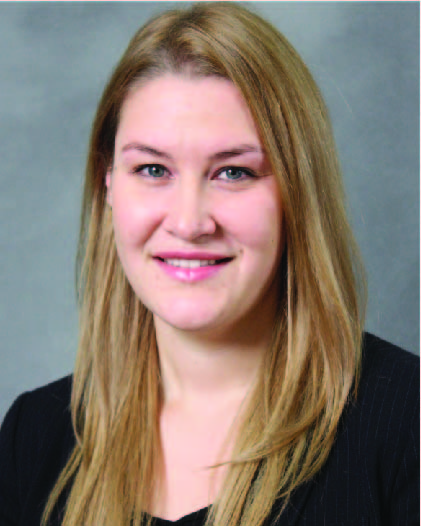Distinguished Lecturers
To request a Distinguished Lecturer (DL) for your next event, complete the DL Application Form. For more information or to see the full list, go to the Distinguished Lecturers page.

Seoul, South Korea
Kyu-Jin Cho received B.S and M.S. degrees from Seoul National University, Korea and a Ph.D. degree in ME from M.I.T. He was a post-doctoral fellow at Harvard Microrobotics Laboratory. At present, he is a professor of Mechanical and Engineering and the director of Soft Robotics Research Center and Biorobotics Laboratory at Seoul National University. He has been exploring novel soft robot designs, including a water jumping robot, origami robots and a soft wearable robot for the hand, called Exo-Glove Poly. The work on the water jumping robot was published in SCIENCE and covered by over 300 news media world-wide.
Talk # 1
Soft Robotics: A new paradigm for robotics research
Soft robotics is an emerging field of research that uses soft or compliant materials and elements to overcome the limitation of traditional robotics. Traditionally, robots have been used in an industrial environment with few unknown parameters. As more and more robots are used to interact with environments that are uncertain and vulnerable to change, a technology that can easily adapt to the changing environment is needed. Soft robotics deals with this issue by using soft and compliant elements in an intelligent way. In this talk, I will describe several novel robotic systems that uses softness to achieve shape control or stiffness control to provide a safe, lightweight and hopefully low cost solution. The key design principle is embodied intelligence or morphological computation which can reduce the complexity of the system while providing useful functionality.
Talk # 2
Soft Robots with Physically Embodied Intelligence
Soft robotics deals with interaction with environments that are uncertain and vulnerable to change, by easily adapting to the environment with soft materials. However, softness requires controlling large degrees of freedom. Many soft robots use pneumatics which can easily distribute the actuation. If tendons are used for actuating a soft body, the large degrees of freedom of the material either requires large number of tendons or limits the controllability. Tendon drive soft robots can benefit from using the concept of physically embodied intelligence, first proposed by Prof. Rolf Pfeifer. By embodying intelligence into the design, better performance can be achieved with a simpler actuation. In nature, there are few example that exhibit this property. Flytrap, for example, can close its leaves quickly by using bistability of the leaves instead of just relying on the actuation. Inchworm achieves adaptive gripping with its prolegs by using the buckling effect. In this talk, I will give an overview of various soft robotic technologies, and some of the soft robots with physically embodied intelligence that are being developed at SNU. These examples will show that the concept of physically embodied intelligence simplifies the design and enables better performance by exploiting the characteristics of the material.

Cambridge, England
Fumiya Iida (SM’17) is a university lecturer at Department of Engineering, University of Cambridge. He is also the director of Biologically Inspired Robotics Laboratory and a fellow of Corpus Christi College. He received his bachelor and master degrees in mechanical engineering at Tokyo University of Science in Japan, and Dr. sc. nat. in Informatics at University of Zurich in Switzerland. During his PhD project, he was also engaged in biomechanics research of human locomotion at Locomotion Laboratory, University of Jena in Germany. While he worked as a postdoctoral associate at the Computer Science and Artificial Intelligence Laboratory, Massachusetts Institute of Technology in USA, he awarded the Fellowship for Prospective Researchers from the Swiss National Science Foundation, and then, the Swiss National Science Foundation Professorship hosted by ETH Zurich. In 2014 he moved to the University of Cambridge as the director of Bio-Inspired Robotics Laboratory. His research interest includes biologically inspired robotics, embodied artificial intelligence, and soft robotics, where he was involved in a number of research projects related to robot locomotion, manipulation, and human-robot interactions leading to some start-up companies. He was a recipient of the IROS2016 Fukuda Young Professional Award, and Royal Society Translation Award in 2017.
Talk # 1
Biologically Inspired Soft Robotics: Challenges and Perspectives
As the complexity of robotic systems enhances, it becomes increasingly more difficult for humans to design and construct them manually. In particular, soft deformable systems that have essentially infinite design parameters as well as degrees of freedom, are often intractable for humans to apply conventional design and fabrication methods. For this problem, we have been exploring a set of alternative technologies to design and construct complex soft robots, such as multi-material 3D printing, electrically conductive elastomers, and model-free design automation processes. With the recent rapid progress of these technologies, we are able to develop a family of new robots that we can characterised as “morphologically computing machines”. We are exploring how such a new paradigm of design processes can be realised, though there are a number of known challenges such as the dimensionality problem, the scalability problem, and the reality gap.

New Haven, (CT) USA
Rebecca Kramer-Bottiglio is an Assistant Professor of Mechanical Engineering and Materials Science at Yale University. She completed her B.S. at the Johns Hopkins University, M.S. at U.C. Berkeley, and Ph.D. at Harvard University. Prior to joining the faculty at Yale, she was an Assistant Professor of Mechanical Engineering at Purdue University. She currently serves as an Associate Editor of Soft Robotics, Frontiers in Robotics and AI: Soft Robotics, IEEE Robotics and Automation Letters, and Multifunctional Materials. She is the recipient of the NSF CAREER Award, the NASA Early Career Faculty Award, the AFOSR Young Investigator Award, the ONR Young Investigator Award, and was named to Forbes’ 2015 30 under 30 list.